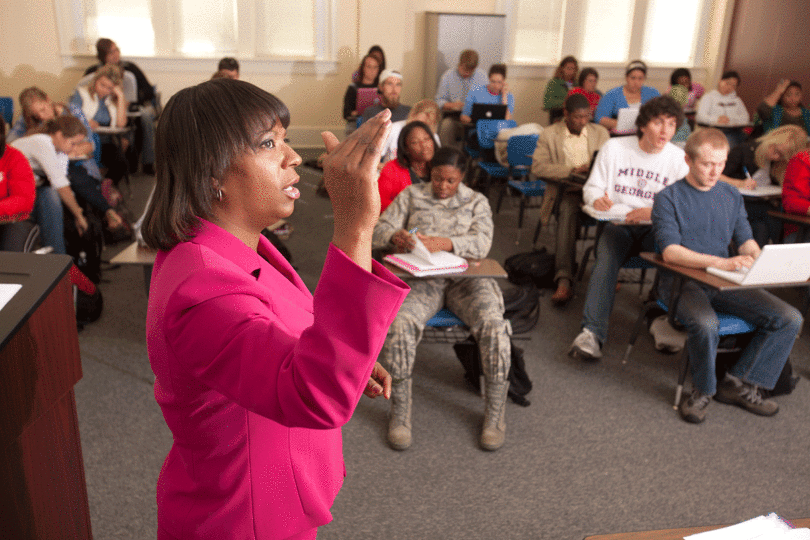Tina Harris’ speech communication classes are more than just talk. She turns them into learning communities where every voice is valued and heard.
“Students at large universities are used to being ‘just another number,’ but I challenge that perception and create an environment where that number transforms into a name, an entity distinctly and qualitatively different from all others,” Harris said. “I employ a variety of strategies to convey to students that I care about their overall well-being and success beyond the four walls of the classroom.”
And those strategies work.
“As a social scientist, I move students from theory into practice through role playing, intensive writing, self reflection, attending cultural events and other course assignments that individually and collectively function to facilitate student growth and understanding,” she said. “In the end, students gain insight and understanding about socially constructed identities and the application of their knowledge to real-world contexts.”
Harris further enriches her students’ classroom experience by fusing her research into classroom instruction.
“The integration of my research, along with the work of other scholars, into course content demonstrates to students the value and benefit of being at a Research I institution,” she said. “The relationship between my students and me is symbiotic in that we are all learning, growing and evolving into global citizens destined to make a difference in the world in which we live.”
A UGA faculty member since 1998, Harris received the university’s Sandy Beaver Excellence in Teaching Award in 2009.
As a 2009-2010 Service-Learning Fellow, Harris created a workshop for the Office of Service-Learning on leading constructive classroom discussions on diversity issues. She also developed a service-learning course for UGA’s study-abroad program in Costa Rica.
The first edition of her book, Interracial Communication: Theory to Practice, co-authored with Mark Orbe, was published in 2001; the second edition was released in 2008.
Former student Drew Joiner said his first class with Harris, “Interracial Communication,” was an eye-opener.
“In our country, racism has always been extremely difficult to talk about in general, and even more complicated in an academic setting when there are Caucasians and African Americans in the same room,” he said. “The topic is so sensitive and difficult to navigate that in any other classroom, it is often glossed over as a non-issue. Instead of talking about the issues, they are ignored, which can often lead to an increase in tensions rather than dispelling them.
“Dr. Harris took these tensions head on from the very first day and made the classroom environment a place where students of all races could ask questions, get answers, learn insight from different perspectives, laugh, cry and debate,” he added. “Never in my experience as a student at any level have I seen a classroom come together and learn as a community.”








